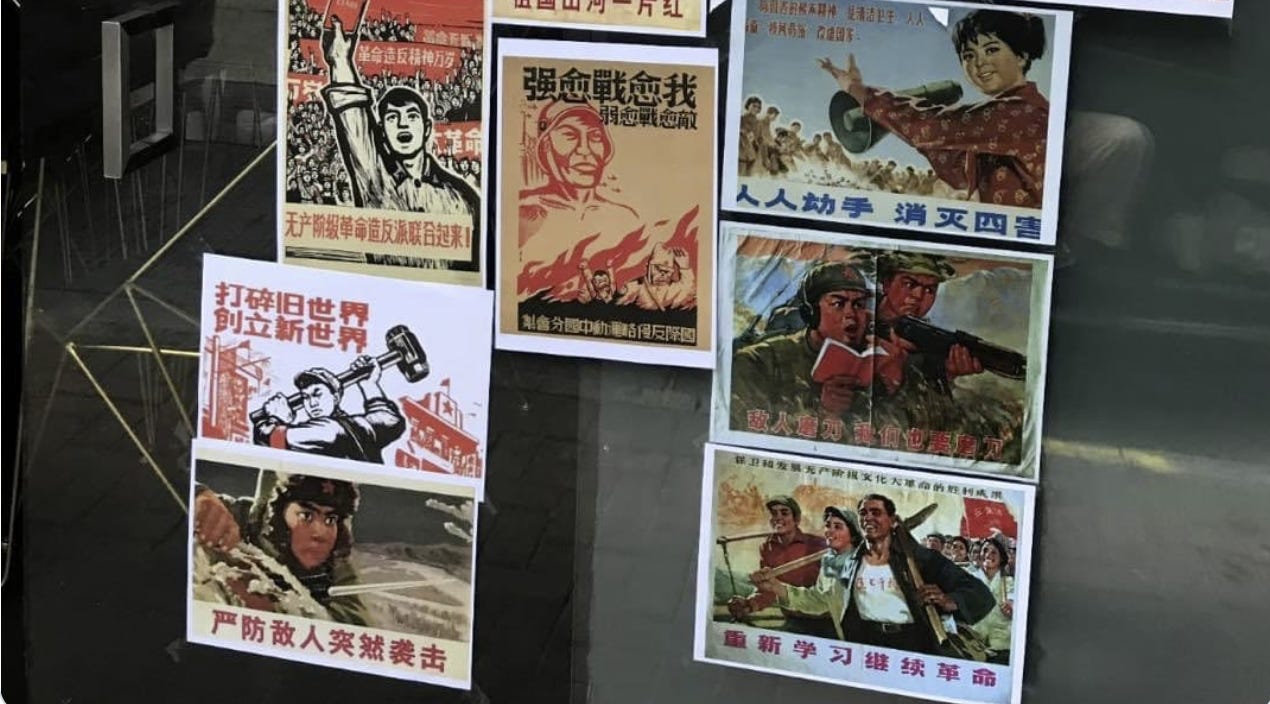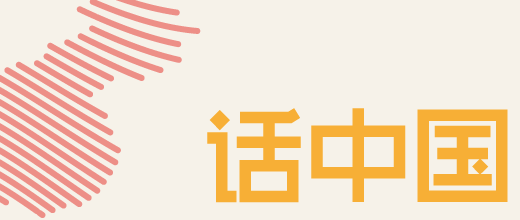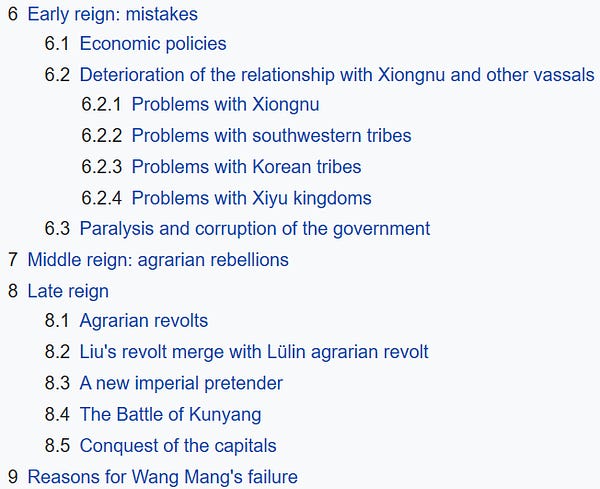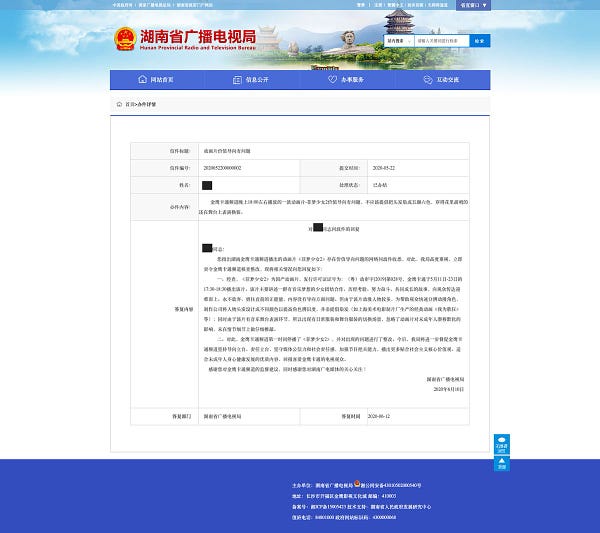How Bad US Immigration Policy Helps China Get Ahead
Two days ago, ICE announced that international students attending universities going online-only can no longer legally stay in the US. They helpfully suggested that students already in the states "depart the country or take other measures, such as transferring to a school with in-person instruction to remain in lawful status." This announcement comes on top of a decision two weeks ago not to let valid H1B visa holders into the country.
This is an outrageous policy, particularly coming so close to the start of the semester. Hundreds of thousands of Chinese nationals are stuck in the US with only a handful of flights currently allowed between the two countries, to say nothing of those students who may have to go home to nations with outbreaks worse than America's. Further, this policy doesn't just apply to undergrads. PhD candidates with spouses and children may also be forced to leave the country.
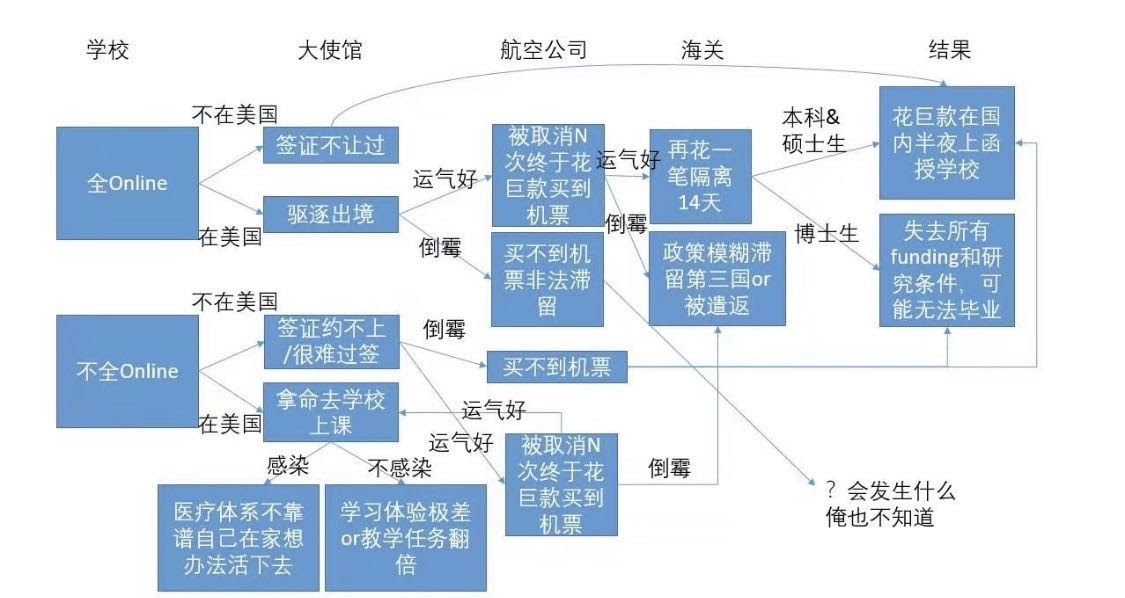
The flow chart outlines multiple layers of hurdles for Chinese students pursuing an education in the US, including the latest ICE rule, visa restrictions, and quarantine regulations.
Before going into the US-China competition analysis of these policy changes, I want to say how profoundly sad it is that this seems to be the only line of thinking that gets traction nowadays. I am a fourth-generation immigrant dating a first-generation one directly impacted by this new ICE policy. Immigrants are worth more to America than the $9bn they spend annually in tuition at public colleges, the patents they create, and the companies they found. If you could rest American exceptionalism on any one point, it would be that this country is a nation of immigrants, and has until recently been better than anywhere on earth at letting people from around the world join our nation’s story.
Tianyu Fang, a Beijinger expecting to start freshman year at Stanford next month, wrote to me:
To those still in the U.S. who have struggled to return home due to constant flight cancellations and unsafe travel conditions, the ICE policy inevitably feels like an apocalypse.
This is a time that everyone feels insecure, especially when you're living in a country that might expel you because of circumstances out of your control…at the end of the day, what is this administration even trying to achieve here?
There is no non-xenophobic reason for throwing this much goodwill and talent away. The exceptions to the work visa policy which included farm laborers and coronavirus researchers really gave up the game. For this administration, even "high quality" immigrants aren't wanted. To be worthy of entering America, you either need to be working less than minimum wage or literally stopping a pandemic.
What is the Chinese government likely to do in response? During the Two Sessions at the end of May, the deputy director of the Shanghai Municipal Educational Commission suggested that technical colleges open up their rolls to transfers from Chinese nationals who completed some schooling abroad. Currently, if a Chinese national studying undergrad abroad wanted to enroll in a domestic university, they would have to take the gaokao and then start from scratch with no transferred credits. Such a path is especially unrealistic since most Chinese nationals who end up studying in the US spent high school either in international schools or special international divisions of public schools that prepped for the SAT instead of the Chinese college entrance exam.
At the time, the Chinese internet thought this proposal was a joke. I saw plenty of viral articles flying around about how MIT and Caltech students should consider the "Guangdong Light Industry Vocational Technical College," performing arts majors at NYU and UCLA would fit in well at "New Oriental Culinary Education," but politics majors were out of luck "because internationally educated students are ineligible to apply" to any Chinese political science schools. In response to the blowback, the deputy director gave an interview to the People's Daily walking back his suggestion.
Given the most recent US immigration actions, however, I wouldn't be surprised if the Ministry of Education ended up taking another look at this policy. Extending this to undergrads would be a little dicey; opening up undergrad slots at top Chinese universities to rich kids who sidestepped the gaokao, even if only on a one-time basis, would piss off plenty of parents. However, the Chinese government could very well redouble their efforts to woo home PhD candidates studying abroad, particularly as the most competitive and ambitious Chinese graduate students are still largely aiming for international doctoral programs.
A new talent program that aims at bringing the 5000 annual STEM Chinese PhD graduates studying in the US, 90% of whom intend to stay in America after graduation, could be in the offing. This would help increase the quality of the 40,000 or so Chinese nationals who receive STEM PhDs from domestic Chinese universities every year. Changing countries and universities in the middle of a PhD is certainly not ideal, but if the alternative is splitting up a family or spending indefinite periods of time in limbo, then this option starts to look more attractive.
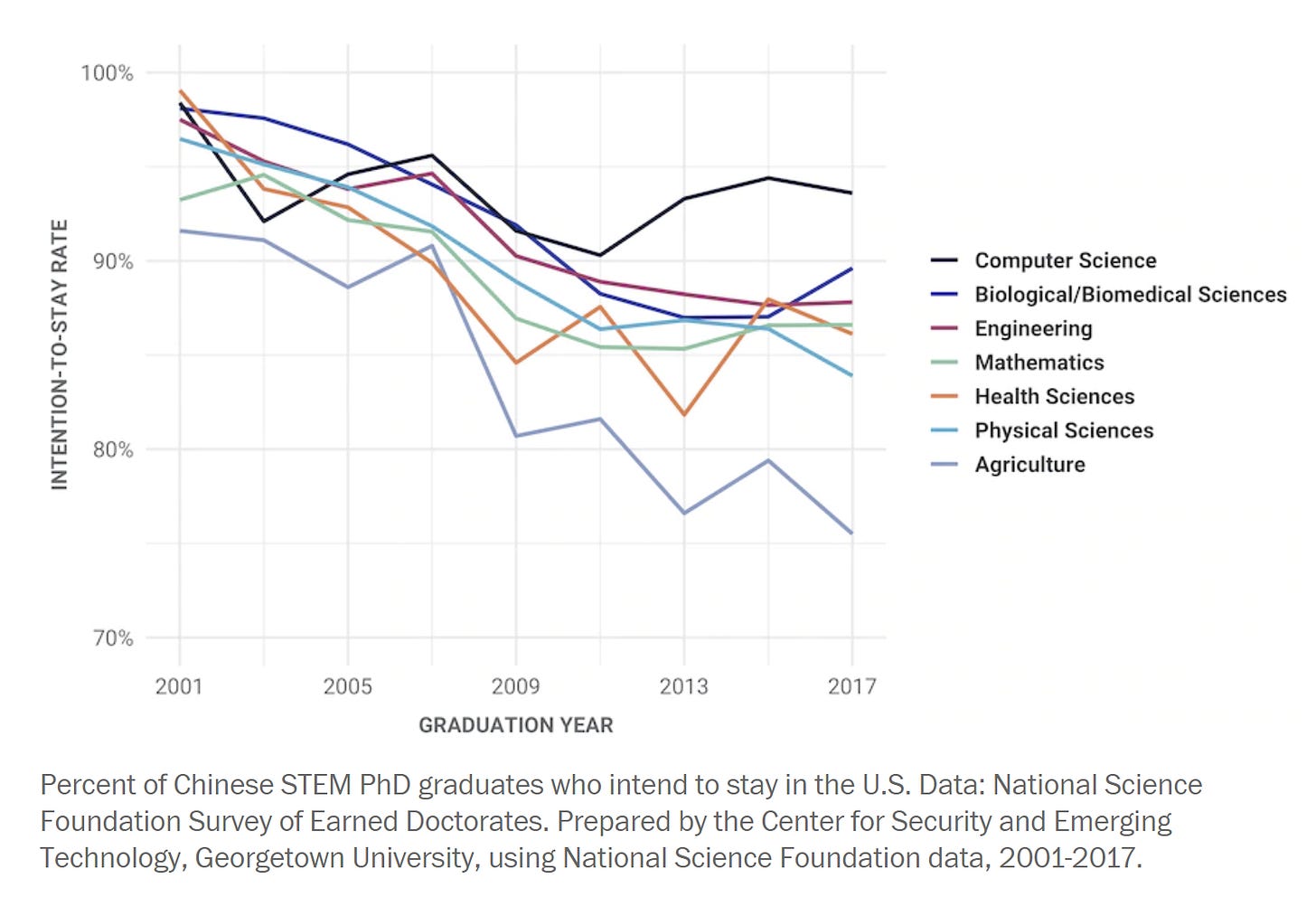
Research from CSET. Note that there are very few Chinese PhDs doing agriculture in the US.
Say China does start trying to poach talent before they finish their PhDs. The question remains, is China's academic research ecosystem mature enough to nurture these talents to their full potential? Recent research by Cong Cao and others point to the answer. Currently, Chinese nationals who work in American and European universities, even though they publish far less in total volume than their counterparts who work in China (top chart), punch far above their weight in numbers when it comes to high-impact publications as determined by the number of citations (bottom chart).
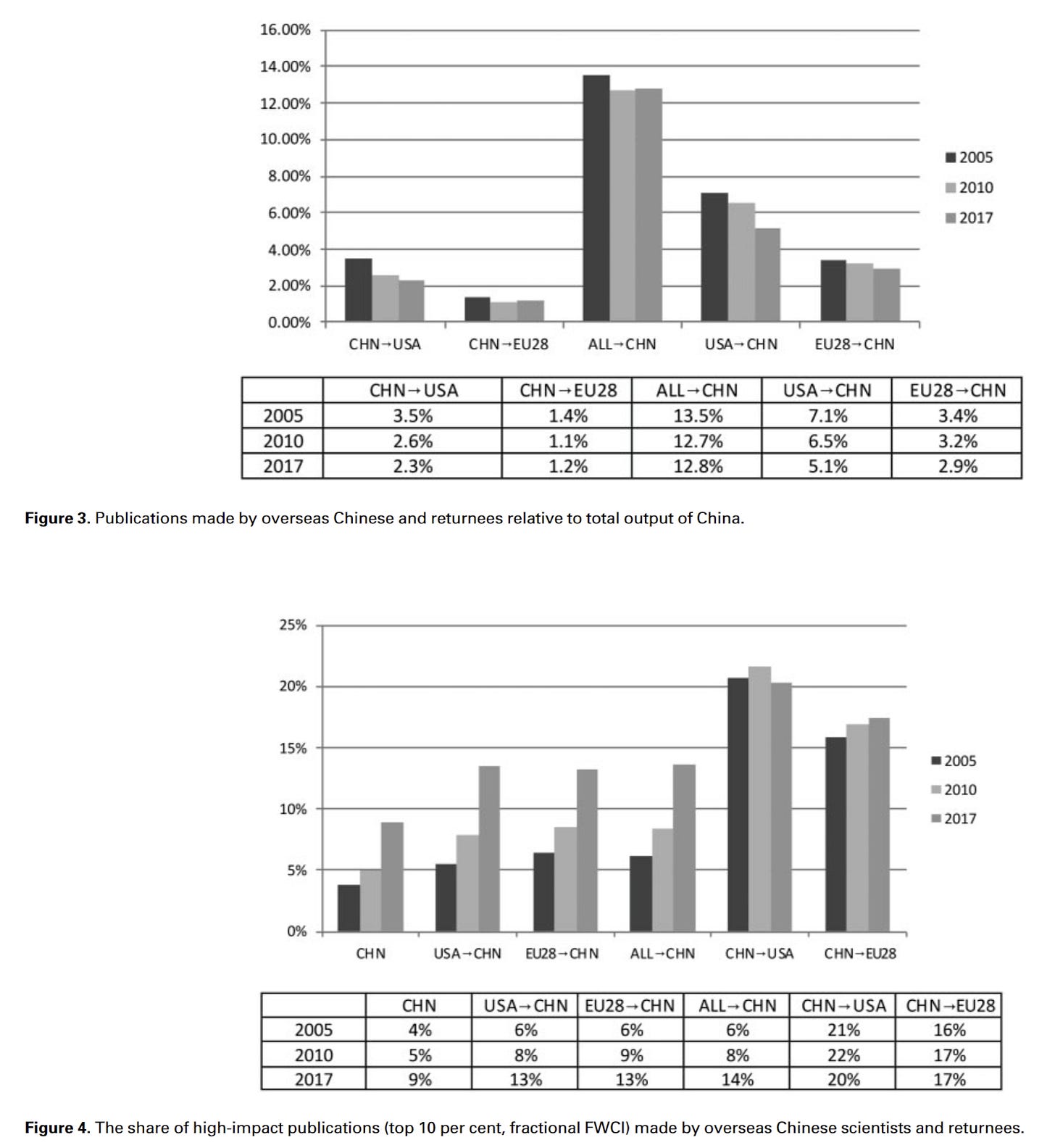
Disaggregating the causes of this gap isn't straightforward. Maybe it's because researchers are on average smarter, better trained, and better funded in the west. Perhaps harsh publish-or-perish incentives within China are particularly detrimental to scientific exploration. Or maybe by virtue of studying and working abroad, these overseas Chinese are more plugged into networks that will lead to their research getting read and cited globally.
In fact, one of the main values the 10,000 or so total scientific returnees (who make up the USA→CHN group in the charts above) bring to the broader Chinese academic community are the connections they form abroad. Aside from just publishing more cited papers, they are also more likely to collaborate with researchers they met back when they did their PhD, providing a crucial bridge to help local scientists connect with the leading global scientists.
Even if the Chinese government doesn't take this opportunity to integrate its best talent studying abroad into the domestic education system, and even if a Biden administration immediately reverses these policies, the impact of these policies will be profound. As academic Bill Kerr writes commenting on this paper:
Before 2004, all foreign students could bank on getting an H1B visa at graduation ... these guarantees evaporated, however, when the cap reverted 65,000 due to sunset clauses … except that specific agreements exempted students from five countries.
What happened? Undergrad enrollments from affected countries dropped by 14% ... Worse, the very *best* students were esp. apt to go elsewhere: SAT scores of applicants from affected countries declined by 20 pts, on average, or ~1.5% declines also for grad students.
In other words, the uncertainty about visa access in 4-5 years had big impacts in the decision to choose America And this episode in 2004 was like little kids playing with toy trucks compared to this week's Monster Truck Smackdown courtesy of the Trump Administration.
The new H1B and ICE rulings will without doubt lower the quality of future international applicants to American PhD programs to the advantage of other nations' universities. They will also dramatically impact the decisions of top international talent currently studying in the US. Right now, around 90% of Chinese AI researchers who got PhDs in America stay in the US to work after graduate school, and four out of five CS grad students in America are on F1 visas. If they can't be confident they'll get H1Bs even though they work in the hottest industry on the planet, there's no reason for them not to take their talents to Toronto or Tianjin.
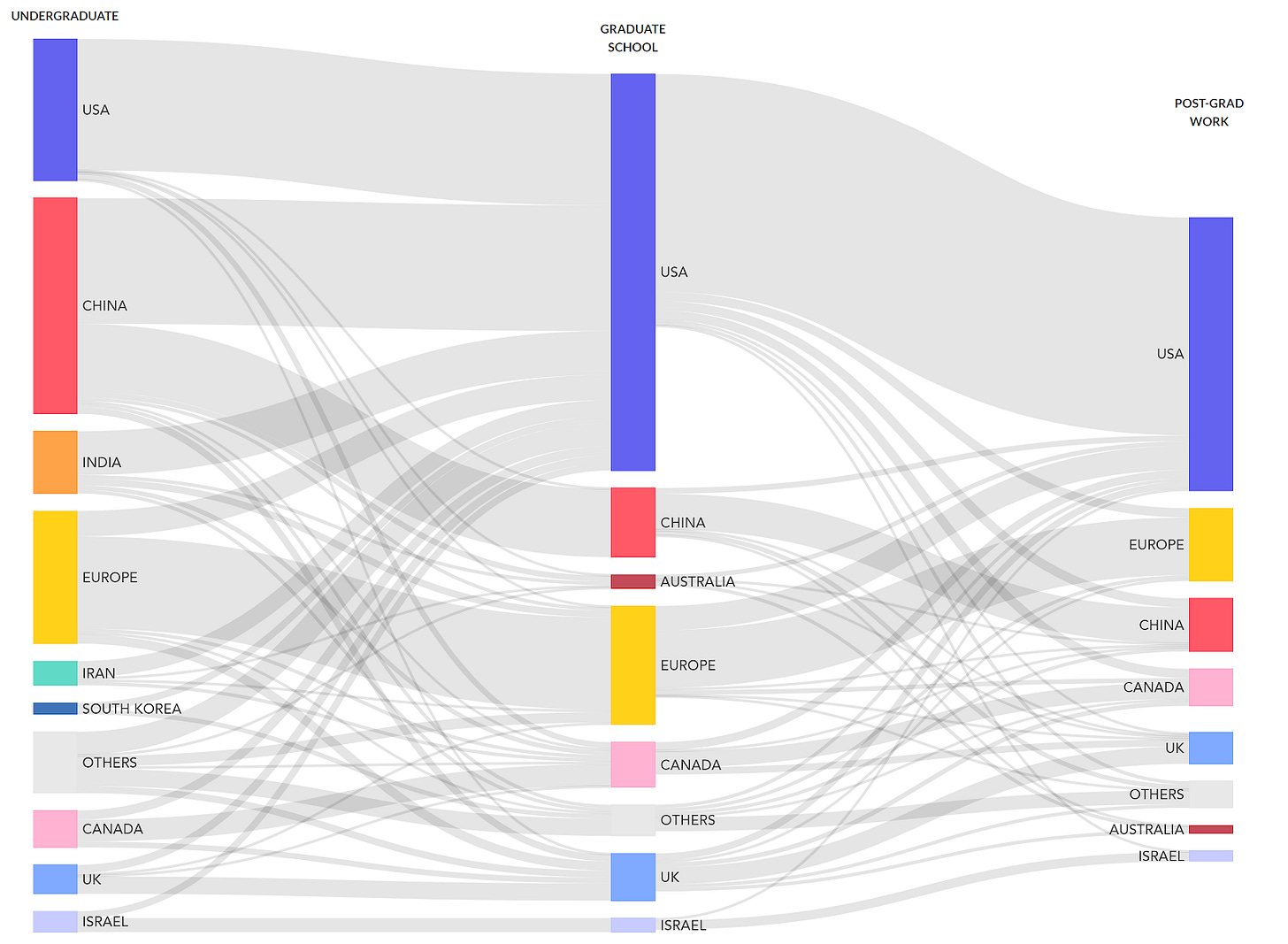
Flows of top AI research talent, research from Macro Polo.
These policies will blow particularly untimely holes in the budgets of universities already reeling from the impact of coronavirus and international enrollments that pre-COVID had already dropped 10% since the start of the Trump administration. Losses in funding will make American PhD programs less attractive for future candidates going forward.
Given the nightmare that is navigating the US immigration system, it's perhaps the truest testament to America's universities, economy, and culture that so many of the world's most driven and ambitious decide to uproot themselves to come here. Throwing this all away will not have the immediate impact of other Trump blunders. But to be sure, its effect will compound over time, as the next generation of Elon Musks and Sergey Brins choose to study and build outside of America.
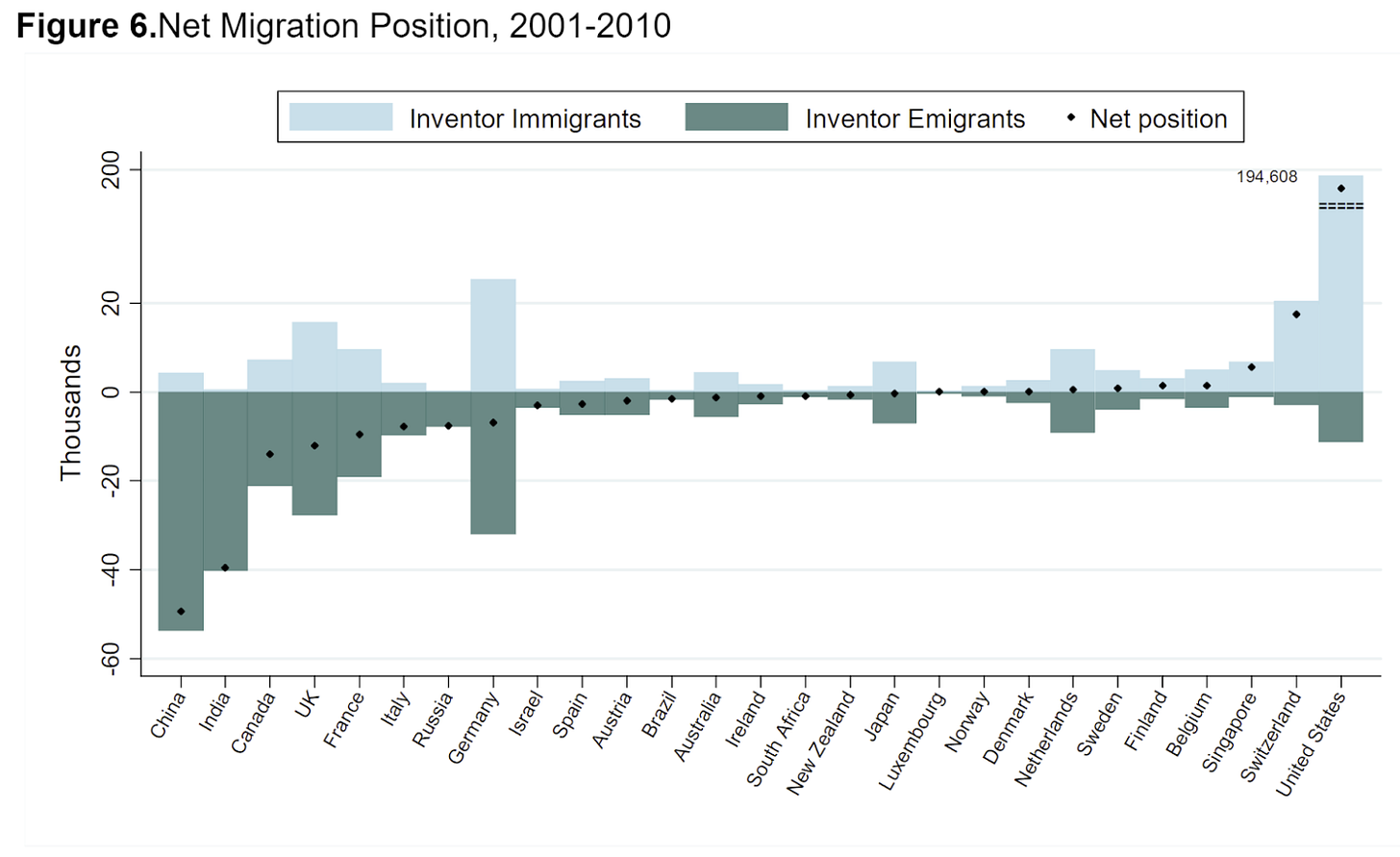
Figure from this paper. The y-axis is truncated. The US has 200k inventor immigrants in this time period, so the graph should actually be way more dramatic in how showing how much the US gains from inventive immigrants.
Thanks to CSET’s Remco Zwetsloot for his comments on this essay. I recently interviewed him on the latest edition of the ChinaTalk podcast talking more about AI talent in America.
Writing columns takes a lot more work than doing translations. If you’re interested in supporting my work, please consider subscribing to this newsletter or donating to my Patreon. Thank you for reading.
China Twitter Tweets of the Week

Thread.





